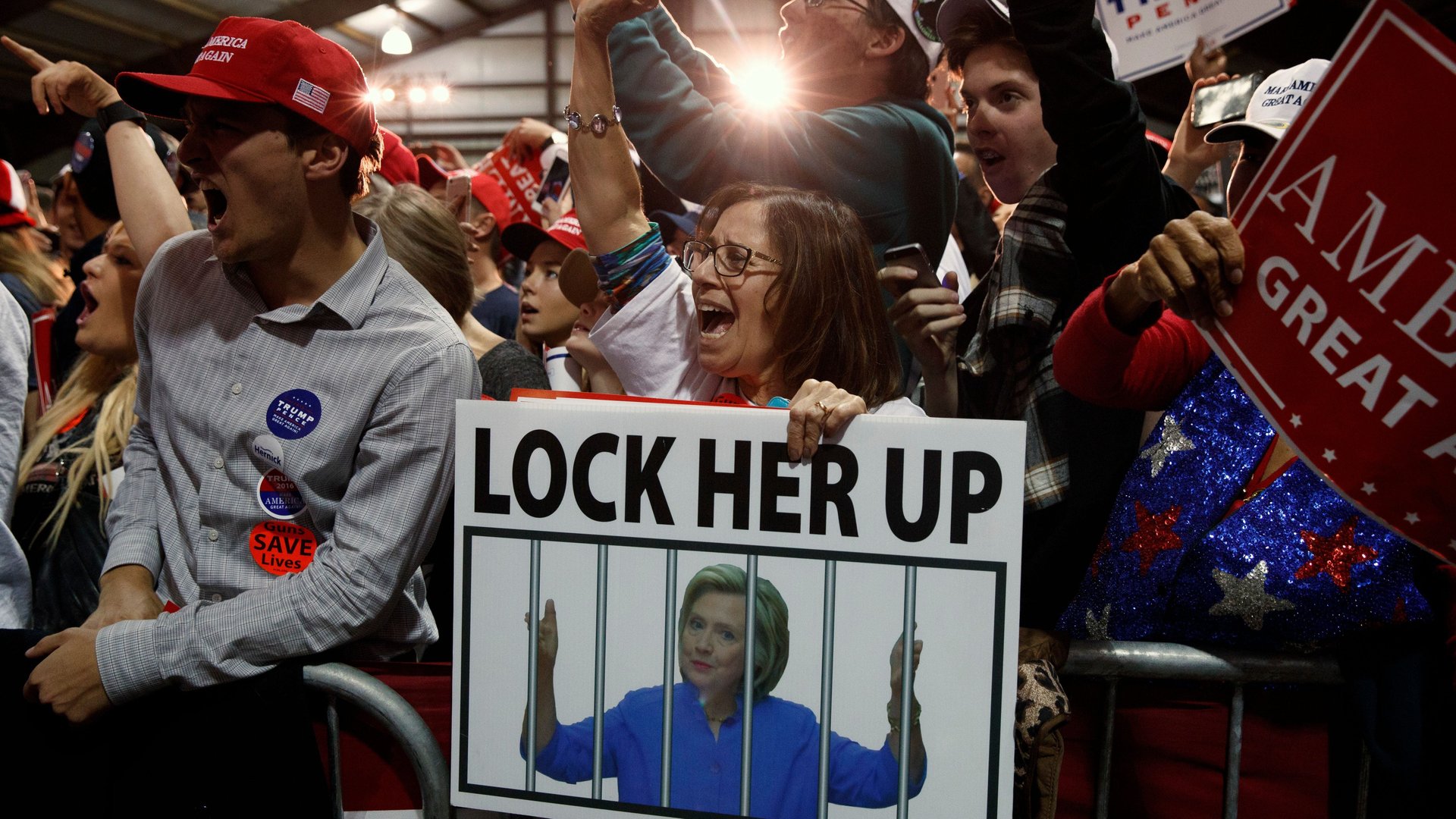Threats against political opponents are a fascist tactic. Trump has all but encouraged them
In the span of a few hours today (Oct. 24), packages containing homemade pipe bombs were delivered to the residences of Barack and Michelle Obama and Hillary and Bill Clinton, as well as to the offices of CNN in New York City’s Time Warner building and the office of Debbie Debbie Wasserman Schultz, a Democrat from Florida. The package sent to CNN was addressed to former CIA director John Brennan, and suspicious packages addressed to California representative Maxine Waters and former US attorney general Eric Holder were also intercepted. Earlier this week, a similar explosive device was found in the mail of progressive billionaire George Soros.


In the span of a few hours today (Oct. 24), packages containing homemade pipe bombs were delivered to the residences of Barack and Michelle Obama and Hillary and Bill Clinton, as well as to the offices of CNN in New York City’s Time Warner building and the office of Debbie Debbie Wasserman Schultz, a Democrat from Florida. The package sent to CNN was addressed to former CIA director John Brennan, and suspicious packages addressed to California representative Maxine Waters and former US attorney general Eric Holder were also intercepted. Earlier this week, a similar explosive device was found in the mail of progressive billionaire George Soros.
Investigations are underway, but already these episodes have at least two elements in common: All involved explosive devices, and all involved targets who have been openly critical of the Trump administration. If the devices were sent by a conservative with an ax to grind against the other side of the aisle, the approach has precedent: The use of violence, particularly against those considered political opponents, is a fundamentally fascist tactic.
At the White House on Tuesday, US president Donald Trump called the attacks “despicable,” adding that “acts or threats of political violence of any kind have no place in the United States of America.”
It’s a somewhat ironic statement for Trump, who has at times levied intense criticism at his political opponents and the press. At his rallies, Trump promoted attacking protesters (paywall) by invoking the “good old days” when police would “rip [a protester] out of that seat so fast.” He has also threatened to jail Hillary Clinton and Dianne Feinstein, and once issued a veiled threat to Maxine Walters. This month, even as he condemned journalist Jamal Khashoggi’s killing at the hands of Saudi Arabia, Trump was praising using physical force against reporters.
“It is not surprising that people whose ideology identifies with Trump’s might do something like this,” says Federico Finchelstein, a professor of history at The New School and author of From Fascism to Populism in History. Finchelstein is quick to note that the government doesn’t appear to have any direct responsibility here; in that sense, the US is still far from fascism. But Trump does bear ”a moral and ethical responsibility” in fostering a climate of violence, Finchelstein says. The president “is an ideological enabler of this [violent] behavior,” and today’s events are evidence of a “curtail and bastardization of democracy.”
Meanwhile, pro-Trump press are taking another page out of the fascist playbook: calling the bomb threats fake news. This tactic, too, has been tacitly endorsed by the president, who just this week said “there is no proof of anything” when asked to support his claims that terrorists are traveling with the Latin American caravan. But, Trump followed up, “they very well could be.”